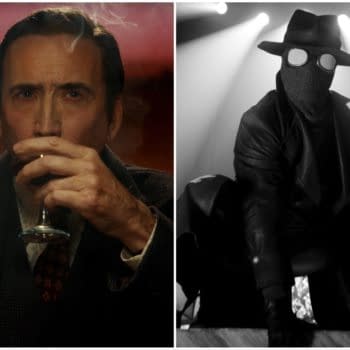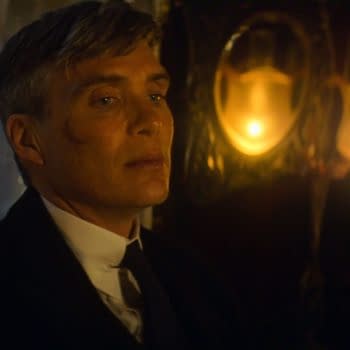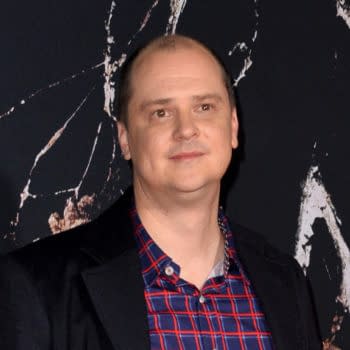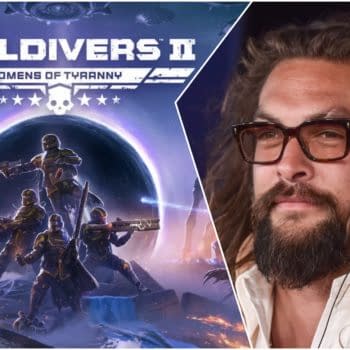Posted in: Movies, Recent Updates | Tagged: chloe moretz, film, horrible bosses, interview, seth gordon
Exclusive Interview With Seth Gordon, Director Of Horrible Bosses and The King of Kong
If you haven't yet worked for a boss you hate so much that you want to repeatedly slam their head in a filing cabinet, then you should go and see Horrible Bosses anyway just so you can realise how lucky you are.
The film is a dark comedy following the exploits of Dale (Charlie Day), Nick (Jason Bateman) and Kurt (Jason Sudeikis) who get pushed to breaking point by their employers, respectively a smoking hot nymphomaniac who rabidly seeks out manflesh like an Uruk-hai in heat (Jennifer Aniston), a cruel, sadistic, soul-crushing corporate vampire with the cold dead eyes of a killer (Kevin Spacey), and an asshat (Colin Farrell).
Director Seth Gordon is best known for the holiday caper Four Christmases, and for the highly successful, ultra-low budget documentary The King of Kong: A Fistful of Quarters, the tale of two men and an epic battle for a Donkey Kong high score that is far more tense and emotional than the synopsis suggests.
Luckily, I was able to score an interview with Gordon to ask him a bit about Horrible Bosses, his past successes and his future conquests. Unluckily the interview was in The Dorchester Hotel, the kind of place where under any other circumstances people like me would be chased away with a broom.
Bleeding Cool: According to the press notes you sometimes let the actors improvise their lines on-set. Did that come out of your experience in documentary?
Seth Gordon: Yeah, I'm certainly open to situations that you can't totally control. Actually, I just enjoy seeing what these guys will come up with, and those three guys, the central guys, they're so funny and their improvisations were so on point for the story and for the scene and the character that it's like having a writing staff on set, because they always come up with great stuff. I definitely encouraged it, especially from them.
BC: What was the best ad-lib in the film?
SG: The cocaine scene wasn't that way. They were just going to drop the cocaine and then going to have to pick it up. But it was Bateman's idea to take the cocaine and to start getting high as they started to clear it up, and then they start confessing things. All that stuff was completely ad-libbed and I think it was a great addition to the movie.
BC: Jennifer Aniston plays a strong female role in a film full of guys, and she has a lot of scenes with Charlie Day who's already well-known in comedy. Do you think she held her own?
SG: Oh yeah. I think she completely held her own, she was phenomenal. We had a couple of rehearsals, there was a read-through and then we ran over their scenes together, especially the lab coat scene because I had a very specific idea in mind of how it would be blocked in advance.
BC: I've read that you like to get very involved with editing. Were you in the edit room for Horrible Bosses a lot?
SG: For sure, my background is editorial, that's the job I had before I was a director, so I'm definitely going to be involved in the editing room. I had my own Avid that I worked on, so I would collaborate with the editor in that way.
BC: The editor was Peter Teshcner, is that right?
SG: Yeah, phenomenal editor.
BC: How did the two of you get on? Any arguments over certain scenes?
SG: No, I wouldn't say arguments, but there's always disagreement on this and that, especially when you get down to the details and the nitty-gritty. If you care a lot you're going to end up getting in arguments about what the best way is, so I'm glad he cared.
BC: How did the screenwriters respond to improvisation? Were they open to it?
SG: Well, the diplomatic way to answer that is… there's not much you can do. The way film is structured it's the director's discretion what happens on set, and so I encouraged the improvisation because I thought it was what was best for the movie and the screenwriters were there some days, some days they weren't. We did what we had to do, because sometimes the scenes sounded good on the page but they weren't, ultimately, on their feet, so you have to be able to change it.
BC: Sort of on the subject of editing, one of your next projects is Mixtape. What stage is that at?
SG: I have an e-mail upstairs that says we may have financing all of a sudden, which may be a result of Bosses performing well, so we just have to finish casting that movie and put it together.
BC: Have you got any cast members onboard already?
SG: Yeah, Chloe Moretz will be the girl, and that's a really important role.
BC: Are you going to be quite involved in the casting process?
SG: Yeah, that's a small film and in a way even more director-driven than this one, which is also director-driven. When you get that small it's really more pressure on the director to work efficiently and be very focused.
BC: Apart from allowing actors to improvise, are there any other techniques that you bring to narrative films from your background in documentary?
SG: In documentary you have to have an incredibly focused point of view to shape what's happening in the world into a story, because that's ultimately what it is, it's a story that you're telling, and I think having that focused point of view is very beneficial to feature filmmaking too, to really know what you want.
BC: So with Horrible Bosses, did you have a very fixed idea at the beginning of what you wanted the film to be?
SG: Yeah, certainly of who the characters would be and the tone of the movie we were telling, and I think that that's a tricky thing, tone, to get it balanced and right. This film has got some really dark elements so you need to be able to treat it with the right manner, or else you go to a really dark place.
BC: You shot Horrible Bosses on Panavision Genesis HD, and The King of Kong was shot on, was it Mini-DV?
SG: Yeah, it was Panasonic DVX100 [a mid-range Mini-DV camcorder].
BC: Do you prefer shooting on digital?
SG: Well the reason we had to shoot this on digital was because we were shooting at night a lot, and the Genesis allows you to shoot with very little light, which is very important for night-time stuff because it allows you to move quickly and get through the work quickly. No matter what once you get on to 4AM or 5AM, even if you've been doing that a lot, people tend to burn out so you need to get through the good stuff as quickly as possible.
BC: The other project you have coming up is the remake of WarGames. Technology has moved on a lot since the original film came out, so how are you planning to bring it into the iPhone age?
SG: The world of technology and politics in general has changed a lot since 1983, so the truth is that it's a lot more plausible that a kid would hack his way into the military. Nowadays and back then, randomly dialing a phone number that happens to be a simulator for a game… you really couldn't get away with that now. It has to be a more deliberate attack of some kind or a prank gone wrong or something. There's a lot more weekly stories of people breaking into NSA or any number of military or governmental organisations.
BC: Have you got anyone lined up to appear in it yet?
SG: No, it's way too early. I'll try to have some kind of cameos from the original, that would be great.
BC: After the release of The King of Kong, and I think this happens with a lot of documentaries, you were accused of shaping the truth through the editing process.
SG: Yes, it's a very fashionable criticism.
BC: Do you think it's a valid criticism?
SG: It depends on the documentary. When I see some I feel like I could certainly spot when something was fabricated or inaccurate, but as someone who's… they've accused Kong of that and I know that it isn't so it's a little bit … it's frustrating because it's an easy, almost lazy criticism to lodge against documentary. Editing is not the same thing as misrepresenting, you have to edit it in order to tell the story, and if certain people find portrayals unflattering it might be the case that it's because what you did wasn't so nice. It may not be misprepresented at all. I think that was the case with some of the folks in Kong, they just didn't like what they saw of themselves and they certainly didn't like the response of others to what was in the film, so they say the easiest criticism they can about a documentary.
BC: How was Freakonomics organised? Did you collaborate much with the other directors?
SG: No, it was very autonomous, in the sense that the deal was that each director was in charge of their section, and as long as they brought it into a certain duration they'd met their obligation. I think that's really important because each of the sections really has its own flavour and its own point of view and its own tone, and I think that that's the goal of an omnibus project like that, you want each to feel like its own director.
BC: You studied Architecture at university, so what made you decide to make the movie into film?
SG: When I was at school was when Final Cut came out, and there was Avid at that time and Media 100, and once I saw what you could do and understood story-telling and the computer and technical side of that, I wasn't interested in architecture any more. Conceptually or as a discipline, maybe, but not as a profession, it's just too slow, too hard, takes too many years to get a chance to actually do something original, and I was just more interested in doing work more immediately and that's why Kong came to be.
At that point the countdown clock ran out, so I thanked Seth for his time and fled the hotel before the staff could take me out back and shoot me.
Horrible Bosses has been on general release in the UK since Friday 22nd June and you can read my review right here on Bleeding Cool later this week.
















